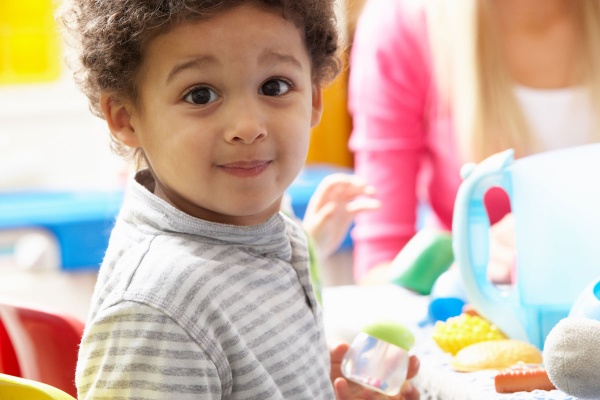

How to Help Kids Make Friends at Any Age
From the time we enter the world, we search out other people to connect with. We are social beings and making and maintaining friendships are a big part of our lives from childhood on. While making friends is of great importance, it doesn’t always come naturally. It can be difficult to find friends that are loyal and that you can build a connection with. Parents can help their kids build social skills that help them make friends at any age.
Role play
One of the easiest ways to teach kids is through play. As you are playing and interacting with your children, role-play scenarios that they may encounter when meeting new people. You can use puppets, dolls, or even stuffed animals to practice social situations they may encounter. Through play, you can teach your child how to ask someone to play or how to join in on a game that is already started. Work out possible conflicts that may arise as they play with friends. After roleplaying, kids will be more comfortable when they face similar situations on the playground.
Set an example
It is just as important for parents to build strong friendships as it is for kids. We have the opportunity to teach our kids through our example. “We move a lot so explaining how I have to make new friends and step out of my comfort zone just like they do helps a lot.” says Stephanie Loux, mom of three. Do you make time for friends in your life? Do you invite friends over or meet for coffee? How often do you step outside your comfort zone to meet new people? Our kids see how we interact with others. If the parent is involved with friends, shows empathy towards others, and helps friends in need, kids will learn that friendships are a priority and understand the natural give and take of a relationship. They will also watch how parents handle conflict and the normal highs and lows that friends experience.
The art of conversation
For kids with the gift of gab, conversation may come naturally but for others a little practice and a few tips can go a long way. Part of making and maintaining friendships is being able to take turns speaking, listen, and respond with empathy when appropriate. Parents can teach kids how to have conversations during daily life by simply modeling this skill. It can also be taught during roleplaying or simply giving them some tools to start a conversation. For example, kids should be reminded to look at the person in the eye, greet a friend as they arrive, respond when asked a question, and ask follow up questions so their friend knows they are listening. It takes some practice but it will be worth it.
Teach proper etiquette
Being polite can go a long way in building friendships. Kids who are polite, say please and thank you, pick up after themselves, and treat others respectfully are more likely to be invited to their friend’s homes. Kids who take turns, share, and let guests go first are also easier to be around. You can model good etiquette for your child and give them gentle reminders during playdates and social interactions.
Encourage healthy conflict resolution
All friends experience conflict. What is important is how you handle it. Door slamming, stomping feet, the silent treatment, yelling, and hitting may release anger at the moment but can be damaging to a friendship. As kids mature, it is important to encourage them to talk about their feelings, come up with a solution, or ask an adult to help. As much as possible, have the kids work out their conflict. However, being available to help them come to a resolution both friends can live with is important.
Be social
One easy way to encourage your kids to make friends is to provide them the opportunities to socialize. Allow your kids to invite friends over to play or to meet at a park. Hosting a playdate that encourages mutual interests helps build friendships as well. If your child is interested in animals, invite a friend with mutual interests to meet you at the zoo. Sports and extracurricular activities are another great place to find friends with mutual interests. “Helping them say hello to other kids at parks and school events helps.” says Loux. “I also make an effort to go to all class birthday parties so they have more time with friends.” Simply being around other people helps your child build social skills and make friends.
It is important to remember that everyone has a different personality which will affect how they react in social situations. Some children love to be the center of attention and thrive off of being around others. Other children may be more reserved and shy. They may enjoy being around other people but prefer to sit back and observe the situation. Remember that it’s important to cultivate your child’s social skills based on what they feel the most comfortable with, even if that is different from your own. It is also important to remember that your child does not need to be the most popular person in the class, they really only need one or two close friends to feel accepted and connected to their peers.
Sarah Lyons and her husband, Justin, have been married for 20 years and have six children together.





















